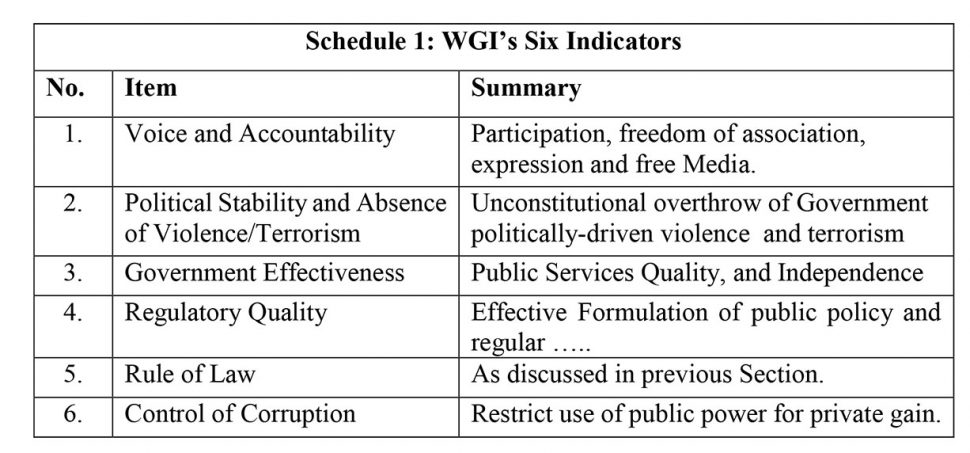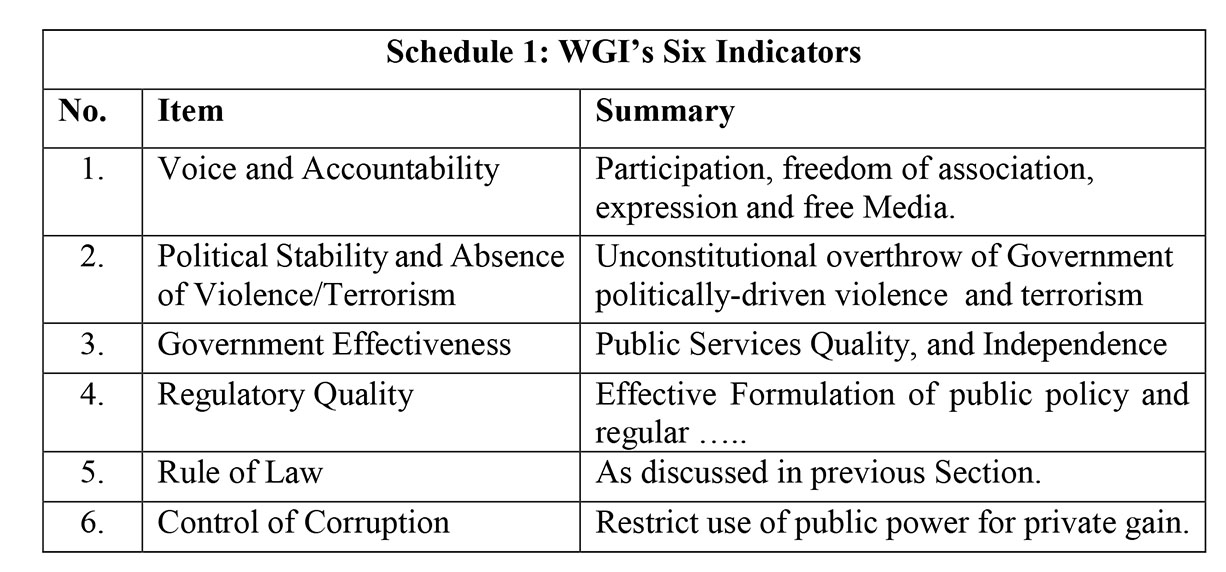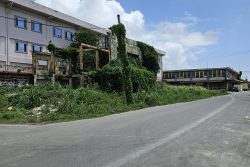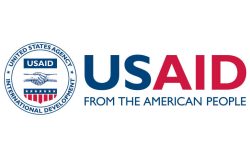To recall, today’s column wraps-up the discussion of the Governance Curse. This topic was identified as one of the strategic development challenges that the Government of Guyana (GoG) faces as it plans to spend its coming sizeable petroleum revenues. The column offers comments on the final item left to be considered, that is, the breakdown of the rule of law (governance matters) as a driver of the Governance Curse.
Rule of Law
When introducing the concerns of the Governance Curse, I had stressed that any breakdown of the rule of law engenders adverse impacts on governance. These generally foster “corruption and/or the diversion of natural resources revenues to private gain and not public benefit.” However, while the focus thus far has been on corrupt practices, it is my conviction that corruption alone does not adequately address the overwhelmingly adverse impacts of a breakdown in the rule of law. For this purpose, I recommend readers to the framework employed in the World Justice Project (WJP) as a guide for the application of the rule of law, in the context of the top-ten developmental challenges I have listed.
Furthermore, this is important for the navigation of the development challenges, for which I have posed that performance indicators can be introduced to measure success or otherwise as an outcome. Recall that, in the case of other development challenges, say Dutch Disease, I introduced indicators of this like “decline in global competitiveness,” and “appreciation of the nominal and real exchange rate.” Such indicators are measurable, so that Government’s performance can be more objectively, than subjectively, determined. This discussion is elaborated in what follows below.
World Justice Project (WJP)
First, the WJP defines the rule of law system more appropriately for measurement purposes. It portrays this as centering on four universal principles. The first of these is that the Government and its officials, as well as all its agents and agencies, are accountable under the law of the country. No leader, no position in Government, therefore, confers the right of anyone to be considered “above the law and/or unaccountable under the law.” Second, the laws/regulations that are in place are “clear, publicized, stable and fair.” The laws in place protect the fundamental rights of persons, their security and property.
Third, the laws (defined as above) are to be enacted, administered, and enforced in an “accessible, efficient and fair manner.” Finally, the WJP defines the rule of law as embracing the notion that “justice is delivered by competent, ethical and independent representatives.” Additionally, these representatives are expected to be “neutrals” and, indeed, sufficient in numbers, as well as have “adequate resources, and reflect the make-up of the communities they serve.”
Based on such considerations, it can be argued that the Governance Curse that the GoG has to navigate when spending its Take from the oil and gas sector is well laid out in the WJP’s definition of the rule of law system and its four principles. Breakdown of any of these principles can be measured by surveys. The expected outcome, therefore, is for such a breakdown to adversely impact Guyana’s development thrust, engendered by an increased capacity to spend arising from increased petroleum revenues.
Governance Matters
From the discussion so far it is evident that Governance really does matter. This is always the case, basically because governance has cultural, political, social, economic, developmental, as well as institutional dimensions. These dimensions are especially crucial for resource abundant countries. And indeed, it is precisely because of this that this phenomenon has led to the formulation of the Worldwide Governance Indicators (WGI). This is a second example of the possibilities for measuring the state of the Governance Curse in resource abundant countries.
As the WGI declares, it “organizes and synthesizes data reflecting the views and reports of tens of thousands of stakeholders worldwide, including respondents to household and firm surveys and experts from NGOs, public sector agencies and providers of commercial business information.” Today, these indicators have been compiled annually to cover over 200 countries since the mid-1990s.
Given, therefore, the context in which the WGI evolved, it is directly applicable to the situation confronting Guyana today, as it prepares for first oil in 2020. There are six core indicators which are measured in the WGI.
The first item, like the others, focuses on perceptions, which can be statistically measured. It seeks to capture “perceptions” of citizens’ ability to participate in selecting and supporting governments. This is Voice and Accountability. The second captures perceptions of the likelihood of governmental destabilization and/or politically-motivated violence and terrorism. This is Political Stability, and the Absence of Violence and Terrorism. The third captures perception of public service quality, impartiality and independence from political pressures. This is Government Effectiveness. The fourth captures perceptions of governments’ ability to formulate effective policies. This is Regulatory Quality. The fifth captures all we have said about the “rule of law” in the section above. This is the Rule of Law. Finally, the sixth indicator captures perceptions of the extent to which, as a rule, public power is exercised for private gain. This is Control of Corruption.
Conclusion
Empirical statistical studies, based on the application of the WGI indicators reveal that: “While there are many nations facing enormous governance challenges, there are countries that show that natural resources can be a blessing.” Trend data for 2002 to 2011 identify “a group of extractive-rich states [whose] governance performance is not only satisfactory, but has been improving over the last decade.” (Brookings, 2012). This is a hopeful outcome for Guyana.
This concludes discussion on the Governance Curse. Next week, I turn to the fourth of the top-ten challenges ̶ Absorptive Capacity.












